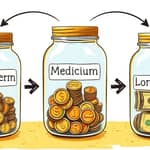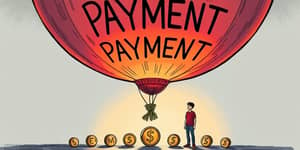
Owning a home is often the cornerstone of the American dream, yet the weight of a mortgage can feel like an anchor tethering you to a fixed payment schedule for decades. When you look at the total dollars flowing toward your lender, a staggering portion goes toward interest rather than the price of bricks and beams beneath your feet. This reality can stir frustration and a sense of helplessness, especially when the larger goal is to build lasting wealth and stability. Fortunately, there is a straightforward strategy that offers homeowners a sense of control and the promise of meaningful savings.
With a few intentional steps, you can take control of your mortgage journey and reclaim thousands in interest payments over time.
Every mortgage payment you make is divided between interest and principal. The interest portion covers the lender’s fee for borrowing money, while the principal portion reduces the amount you owe on the loan. By making additional payments that go directly toward the principal, you effectively reduce the principal balance faster. This strategy minimizes interest accrual over time because interest is calculated on the remaining principal balance.
For every extra dollar you pay beyond your scheduled minimum, you cut the amount of future interest charged. Over a 30-year loan, even modest extra payments can generate substantial savings on interest and help you pay off the mortgage years ahead of schedule.
To understand the real impact of extra payments, use online mortgage payoff calculators. Input your current loan balance, interest rate, and the amount you plan to add each month. These tools will visualize real dollars at work and show you how each additional payment accelerates your path to ownership.
Consider a homeowner with a remaining balance of $372,217.43 on a 30-year mortgage at 4.5% interest. By adding $500 extra each month toward the principal, they can make a dramatic difference.
In this example, a single $500 payment each month can trim nearly eight years off the loan and slash thousands in interest. This kind of clarity can be exhilarating and motivating for any homeowner.
Making extra payments early in your mortgage term carries the greatest benefit. Interest charges are highest at the beginning of the amortization schedule, so paying down principal early leads to the biggest impact on overall interest costs.
Jessica and Mark, a young couple in Colorado, shared their personal triumph when they decided to adjust their payment strategy. After reviewing their finances, they committed to tacking an extra $300 onto their monthly mortgage. Within five years, they watched their balance drop faster than expected. They celebrated their early mortgage payoff by hosting a backyard gathering, free of financial stress. Their success underscores how small, consistent actions can yield life-changing rewards, giving them the freedom to explore new investments and plan for retirement with renewed vigor.
While the benefits of extra payments are clear, it’s important to understand the details of your mortgage agreement. Some loans include prepayment penalties that could offset your savings. Additionally, there may be alternative uses for your money with higher potential returns.
Extra payments can significantly shorten your amortization period, taking years off your mortgage. By focusing on the principal balance, you break the cycle of paying primarily interest during the early stages of your loan. This shift can reshape your long-term financial plan, unlocking the ability to redirect funds toward other goals such as education, travel, or retirement savings.
Different loan types respond uniquely to extra payments. While fixed-rate mortgages offer predictable benefits, adjustable-rate mortgages may have clauses that limit principal reductions in certain periods. Consult your loan officer to confirm how additional payments are applied. Furthermore, consider the broader financial implications, including tax deductions and the potential removal of mortgage insurance.
By taking a strategic long-term payment approach and understanding the details of your mortgage, you align each extra dollar with your long-term vision for financial freedom.
Embracing the habit of making extra payments when possible is a powerful step toward debt reduction and wealth creation. Whether you add a small amount each month or make occasional lump-sum payments from a bonus or tax refund, the principle remains the same: every extra dollar chipped away at principal is a dollar that won’t accrue future interest.
Now is the time to explore mortgage payoff calculators today and consult trusted financial advisors early to tailor this strategy to your personal goals. Take action, reclaim your financial power, and watch your home equity—and peace of mind—grow.
References













